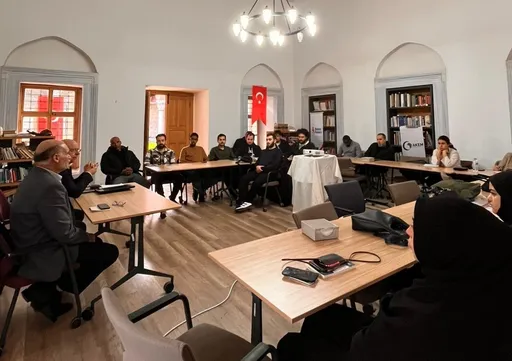By Charles Mgbolu
The growth of online comedy has created a major divergence from the first-generation stand-up comedy format, which saw comedians stand in front of a packed auditorium and deliver round after round of humour.
In the past decade or so, there has been a radical shift, with access to comedy content becoming much easier due to the power of digital technology.
With a simple smartphone and the internet, comedy lovers are so deluged with content leaving them with only, perhaps, the challenge of choice and not of availability.
This is evident in the number of views recorded online. For example, popular Nigerian skit maker Samuel Animashaun Perry, from Nigeria, rakes in as many as four million views in a single skit video.
Data from the Africa Polling Institute (API) shows that the top five content creators from Nigeria alone have a cumulative following of over 53 million on various social media platforms.
‘’It’s where the market is now,’’ Christian Iroka, a Nigerian online comedy skit maker, tells TRT Afrika.
‘’Brands and businesses are mostly interested in working with those who have a huge following on social media. That’s why this new comedy format is growing,’’ he says.
Yaga, a Kenyan online content creator with over 1.2 million followers on TikTok, says stand-up comedy is limited.
‘’With stand-up comedy, you just have that room of people, whatever their number is. They are the only ones you can reach with your content at that point in time,’’ he said.
‘’But with online platforms, your reach is endless; there are simply no limits,’’ he tells TRT Afrika.
In the 1990s and 2000s, stand-up comedy was the ‘go-to’ for humour, with tickets selling out like hot cake.
In peak holiday season, comedy show tickets in Nigeria sold for as much as N1,000,000 ($1,250). But today, stand-up comedy events are no longer so common and popular.
‘’It’s been a while since I last heard of such events taking place,’’ says Christian Iroka.
‘’It’s a big shift with some stand-up comedians now moving to creating content for social media,’’ he said.
Huge revenue
Some social media platforms, like YouTube, are paying content creators as much as $40,000 per month.
Meta, after the launch of Facebook and Instagram Reels, says it pays eligible creators up to $35,000 a month based on the views of their qualifying reels.
‘Stand-up comedy events cannot compete with this. What kind of stand-up event series can pay a comedian that kind of money every month?’’ asks Yaga.
‘’Brands will reach out to you when you have huge followings on social media, so pushing out your content more on social media is a strong advantage,’’ says Eric Omondi, the most followed Kenyan comedian on social media.
David Mensah, a stand-up comedian from Ghana, believes face-to-face comedy performance is still relevant.
‘’There will always be people who love and appreciate in-person comedy. Stand-up comedians need only to re-invent themselves and their business strategies,’’ he says.
Many stand-up comedians know they need to shift with the times and are now also posting their stand-up events on social media platforms.
‘’There is still a huge difference because stand-up comedians only post videos after they have organised an event, which takes months of planning. It cannot be the same as the spontaneous online comedy content creator who sometimes posts videos everyday,’’ says Mensah.
It’s not a walk in the park for online comedy content creators too. Nothing good comes easy, says Yaga.
''You have to work hard to build those online numbers and get those views. I personally was told by those closest to me that I wasn’t funny and that I was wasting my time, but I didn’t let that discourage me,’’ he explains.
The move towards online comedy skits is remarkable, but the audience is insatiable, and so when they crave variety in comedy, perhaps stand-up comedians will once again have their chance.
























